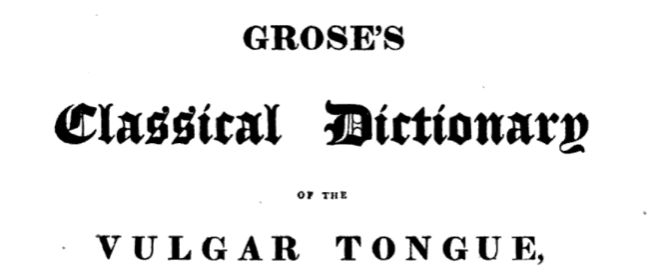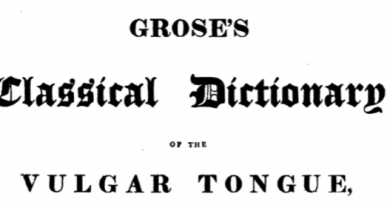Dictionary of the Vulgar Tongue – Day 100
The Dictionary of the Vulgar Tongue was first published at the end of the eighteenth century, and given that the Coronavirus crisis is giving too much time to read books, I thought I’d pick a daily word from it until I got bored…. As a side note, I’m not sure that I expected the crisis to be lasting this long, but here we are, 100 days later…..
Dam
The dictionary defines this as “a small Indian coin, mentioned in the Gentoo code of laws; hence etymologists may, if they please, derive the common expression, I do not care a dam, ie, I do not care half a farthing for it”. The OED don’t like this explanation and claim that there’s no evidence for this origin of the phrase, but prefer the idea that it comes from an Old English word meaning “curse”.
But, there are more word origins here, it may derive from the Latin word ‘dampnare’ meaning to inflict loss on, which later evolved to mean to inflict judgement on. But the earliest time that “don’t care a dam” is recorded is from the eighteenth century, so the Indian coin option is still possible. Most likely in my view is via the Old English route, with the word ‘damnation’, it’s just a corruption down of that word which means “don’t give a care” and it also explains that the word is actually ‘damn’ and not ‘dam’.



